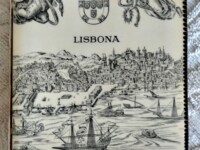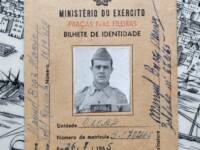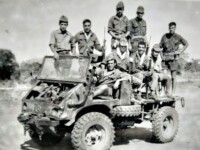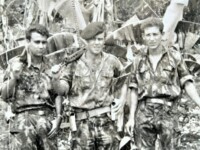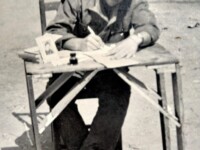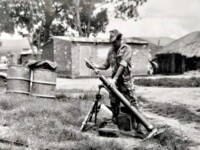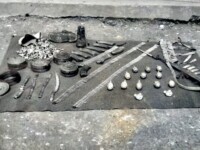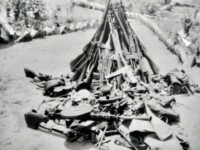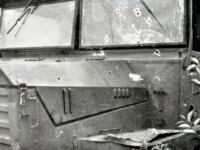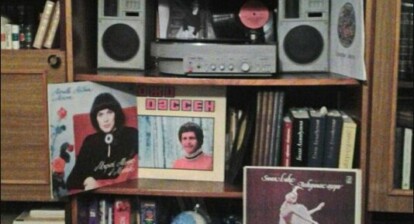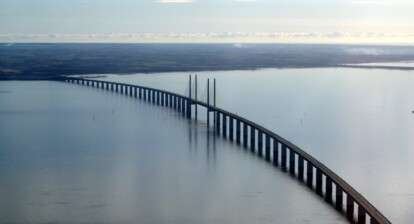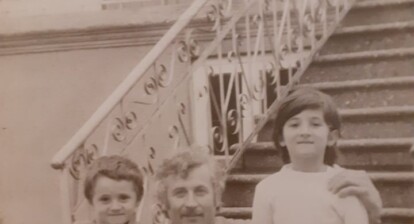The Portuguese Ultramar was a long and bloody period of clashes between the Portuguese armed forces in the colonies and liberation movements in Angola, Guinea-Bissau, and Mozambique, fighting for the independence of their countries. The grandfather of our author Ana Matilde was fighting as a young soldier in Mozambique. He opened up to his granddaughter, who wrote about it on her own website. Here, she gives some insights into the history of her family and her home country.
What is Ultramar?
What is Ultramar?
Ultramar (“Overseas”), the Portuguese Colonial War (1961-1974) was a period of clashes between the Portuguese armed forces and the organized forces by the liberation movements of the colonies. This war happened at the time of the dictatorial regime of Estado Novo. The Estado Novo was the authoritarian, autocratic and corporatist political regime that prevailed in Portugal for 41 years, from the approval of the 1933 Constitution until its overthrow by the Revolution on 25 April 1974.
Embarking Into The Unknown: How Does my Family Remember The Ultramar?
My family vividly recalls the period of the portuguese Ultramar. It is part of the conversations we have about the old days. History is transmitted and learned so that we have a notion of the terror called “war”, we learn from the mistakes of the past and don’t repeat them.
My grandfather Manso was mobilized in Mozambique from January 1966 to April 1968. His first reaction when I asked him about his memories was relief and gratitude for not having been returned to his family’s arms dead or injured as happened to other Portuguese soldiers. For my grandfather, the period of the Portuguese Ultramar is like a book that is part of his bookcase of memories.
Why Were Colonies Important?
Why Were Colonies Important?
The colonies played a central role in president Salazar’s policy, not only economically but also politically. They were abundant in raw materials (coffee, sisal, cotton, and ores) that served to supply Portugal’s national industry and functioned as outlets for agricultural and industrial products. Colonies were an extremely important factor in the politics of economic nationalism.
After the end of WWII, the victorious powers established in the Charter of the United Nations the principle of the right to self-determination, that is, the right to independence. The European colonial powers United Kingdom, France, the Netherlands, and Belgium gradually granted independence to their colonies. Germany already had to do so as a result of WWI. Portugal, however, took a different attitude. President Salazar considered the colonies as an integral part of Portugal. According to the constitutional revision of 1951, the colonies were defined as overseas provinces, denying them to become independent.
“It Was The War That Made me Truly See my Country”
In 1964, when my grandfather was recruited to the military at the age of 20 (it was mandatory for all Portuguese men), it was already predictable that the Portuguese colonial war was not as successful as the regime was hoping it to be. Long before being sent to Mozambique, my grandfather had to leave his village for military training, war preparation and soldier specialisation. He received physical as well as psychological training in different parts of the country (Alentejo, Ribatejo and Estremadura): “The military training was extremely tough. Holding a gun for the first time knowing what I was supposed to do with it at 20 was scary, as if a bucket of cold water had fallen on my head to wake me up and don’t fall asleep again.”
The trip to Mozambique, despite full of fear, was fascinating. My grandfather had no idea what a real ship looked like before getting on board of the Vera Cruz. Embarking in Lisbon, everything seemed gigantic to him, especially the Salazar Bridge, later renamed the 25th of April Bridge.
A Wound That Will Never Heal
One of the most striking and traumatic stories of this period, additionally to the sudden attacks during the night, happened when my grandfather was in a guardhouse with a soldier friend. The gun under his arm went off, causing that the friend lost his arm forever. It was an accident, but if the Portuguese colonial war hadn’t existed, that would never have happened.
“I have a wound in my soul that will never heal. The same wound which is covered by sadness for having been away from my family and land. By anger about the fact that the initiators of the war were sleeping peacefully in their warm beds while others like me had to feel uncertain about the future, to live in constant fear for their lives, to suffer for having seen their partners die and to possibly die.”
How Did The Colonies Respond?
How Did The Colonies Respond?
Portugal’s political regime considered Portugal a pluricontinental and multiracial country that extended, as it was said, «from Minho to Timor». In Africa, the colonies also responded to the Portuguese head of state, as armed movements were formed to fight for the independence of Angola, Guinea-Bissau, and Mozambique. These oppositional movements led to a 13-year war which caused thousands of deaths and high expenses.
Memories Reflecting The Present
All those years were characterised by a lot of suffering on the side of the colonies’ populations and of the Portuguese soldiers who had been forced to fight in the colonies. In the eye of the war, daily life was limited to training and overall preparation for armed conflicts either in attack or in defense. The hope about a soon end of the war and the freedom thereafter was what kept the people alive. The optimism that the revolution would end the regime, the oppression, the suffering, and that better days would come.
Two Songs and Countless Carnations
From 24th to 25th April 1974, the songs «E Depois do Adeus» by Paulo de Carvalho, and «Grândola, Vila Morena», by Zeca Afonso marked the beginning of the military operations by the radio. These songs were the secret sign to people to go out on the streets and start the revolution.
That day, countless people with carnations in their hands or lapels and soldiers with carnations in their weapons overthrew the Estado Novo. It was the birth of a democratic regime that prevails to this day.
The Day of Freedom
The 25th of April is still present in the memories of my country because it’s associated to the word freedom in the mind of many Portuguese people. My parents’ generation is extremely grateful for the courage and determination of its ancestors on this april day. Proud of them on having gone ahead and having fought for their freedom, also for the future generations. Without that grit, we wouldn’t be what we are today.
25th April – Freedom, Pain, Empowerment
My grandfather never opened to his children about this topic, maybe because it was too soon. But for some reason, many years later, he decided to open up to me, and I am very grateful for that. I really don’t know the reason, but it is very special that he just answered my questions and started to tell me about his past over the time. My grandmother, on the contrary, insisted on highlighting the feeling of freedom that she had after 25th April, and the possibility of finally being able to speak without fear and just be a human.
Ultramar represents great sadness, a lot of pain endured by the Portuguese people and in particular by women like my grandmother, who were wrapped in tears and promises of hope. But beside the sadness, one shouldn’t forget that the colonial war also represents the empowerment and later liberation of the colonies’ populations.
- My grandfather’s Ultramar photo album (Photo Private)
- My grandfather Manso’s ID card, issued by the Army Ministry (Photo: Private)
- Ultramar soldiers (Photo Private)
- Ultramar soldiers (Photo: Private)
- My grandfather writing to my grandmother from the war (Photo: Private)
- Photos from the war (Photo: Private)
- Armaments (Photo: Private)
- More armaments (Photo: Private)
- Bullet marks (Photo: Private)
And The Young View?
You may probably wonder: Does the young generation have a different view on it than the older generation? No, in general, everyone supports the positive and proud commemoration of 25th April. We need to continue remembering this day of April 1974. This day became a holiday to celebrate and remember the history and highlight the importance of freedom and democracy. The majority of young Portuguese are grateful for the efforts of their grandparents and are aware of the tears caused by war and the carnations of revolution. Our freedom only exists because of those who fought and made the people’s voices against the regime heard. Could we receive more love than a free life?
Our freedom, our voice – “The united people will never be defeated! – These were the words that were spread in the streets of Lisbon during the Carnation Revolution – and they are somehow still in our minds.
The Reason Why
With this article, I wanted to share a little of my country’s history and especially the fate of my maternal grandfather during the war. I wanted to give an idea of what the Ultramar was like and tell some family stories to illustrate this period. Ultramar is something that really marks my relationship with my grandfather Manso and I feel grateful that I can share those memories that shape part of our relationship.
What was it like to be a child or worker in Portugal at that time? How did the people manage to stay strong in times of uncertainty and turmoil? Read The Censored Voices of the Carnation Revolution by Claudia, participant of the eCommemoration Campus 2020.


